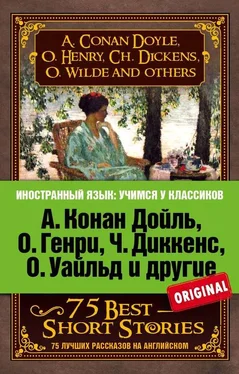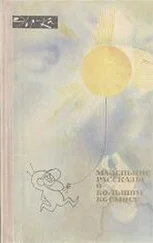Some genius at the end of the table whereat the affair was being talked over, said, ‘Look here! I don’t believe lawyers are any good. Get a man to wire to Strickland, and beg him to come down and pull us through.’
Strickland was about a hundred and eighty miles up the line. He had not long been married to Miss Youghal, but he scented in the telegram a chance of return to the old detective work that his soul lusted after, and next time he came in and heard our story. He finished his pipe and said oracularly, ‘We must get at the evidence. Oorya bearer, Mussulman khit and sweeper ayah [329], I suppose, are the pillars of the charge. I am on in this piece; but I’m afraid I’m getting rusty in my talk.’
He rose and went into Biel’s bedroom, where his trunk had been put, and shut the door. An hour later, we heard him say, ‘I hadn’t the heart to part with my old make-ups when I married. Will this do?’ There was a loathly fakir [330]salaaming [331]in the doorway.
‘Now lend me fifty rupees,’ said Strickland, ‘and give me your Words of Honour that you won’t tell my wife.’
He got all that he asked for, and left the house while the table drank his health. What he did only he himself knows. A fakir hung about Bronckhorst’s compound for twelve days. Then a sweeper appeared, and when Biel heard of him , he said that Strickland was an angel full-fledged. Whether the sweeper made love to Janki, Mrs. Bronckhorst’s ayah, is a question which concerns Strickland exclusively.
He came back at the end of three weeks, and said quietly, ‘You spoke the truth, Biel. The whole business is put up from beginning to end. Jove! It almost astonishes me ! That Bronckhorst beast isn’t fit to live.’
There was uproar and shouting, and Biel said, ‘How are you going to prove it? You can’t say that you’ve been trespassing on Bronckhorst’s compound in disguise!’
‘No,’ said Strickland. ‘Tell your lawyer-fool, whoever he is, to get up something strong about “inherent improbabilities” and “discrepancies of evidence”. He won’t have to speak, but it will make him happy, I ’m going to run this business.’
Biel held his tongue, and the other men waited to see what would happen. They trusted Strickland as men trust quiet men. When the case came off the Court was crowded. Strickland hung about in the veranda of the Court, till he met the Mohammedan [332]khitmutgar [333]. Then he murmured a fakir’s blessing in his ear, and asked him how his second wife did. The man spun round, and, as he looked into the eyes of ‘Estreekin Sahib’ [334], his jaw dropped. You must remember that before Strickland was married, he was, as I have told you already, a power among natives. Strickland whispered a rather coarse vernacular proverb to the effect that he was abreast of all that was going on, and went into the Court armed with a gut trainer’s-whip.
The Mohammedan was the first witness, and Strickland beamed upon him from the back of the Court. The man moistened his lips with his tongue and, in his abject fear of ‘Estreekin Sahib’, the fakir went back on every detail of his evidence – said he was a poor man, and God was his witness that he had forgotten everything that Bronckhorst Sahib had told him to say. Between his terror of Strickland, the Judge, and Bronckhorst he collapsed weeping.
Then began the panic among the witnesses. Janki, the ayah , leering chastely behind her veil, turned grey, and the bearer left the Court. He said that his Mamma was dying, and that it was not wholesome for any man to lie unthriftily in the presence of ‘Estreekin Sahib’.
Biel said politely to Bronckhorst, ‘Your witnesses don’t seem to work. Haven’t you any forged letters to produce?’ But Bronckhorst was swaying to and fro in his chair, and there was a dead pause after Biel had been called to order.
Bronckhorst’s Counsel saw the look on his client’s face, and without more ado pitched his papers on the little green-baize table, and mumbled something about having been misinformed. The whole Court applauded wildly, like soldiers at a theatre, and the Judge began to say what he thought.
* * * * *
Biel came out of the Court, and Strickland dropped a gut trainer’s-whip in the veranda. Ten minutes later, Biel was cutting Bronckhorst into ribbons behind the old Court cells, quietly and without scandal. What was left of Bronckhorst was sent home in a carriage; and his wife wept over it and nursed it into a man again. Later on, after Biel had managed to hush up the counter-charge against Bronckhorst of fabricating false evidence, Mrs. Bronckhorst, with her faint, watery smile, said that there had been a mistake, but it wasn’t her Teddy’s fault altogether. She would wait till her Teddy came back to her. Perhaps he had grown tired of her, or she had tried his patience, and perhaps we wouldn’t cut her any more, and perhaps the mothers would let their children play with ‘little Teddy’ again. He was so lonely. Then the station invited Mrs. Bronckhorst everywhere, until Bronckhorst was fit to appear in public, when he went Home and took his wife with him. According to latest advices, her Teddy did come back to her, and they are moderately happy. Though, of course, he can never forgive her the thrashing that she was the indirect means of getting for him.
* * * * *
What Biel wants to know is, ‘Why didn’t I press home the charge against the Bronckhorst brute, and have him run in?’
What Mrs. Strickland wants to know is, ‘How did my husband bring such a lovely, lovely Waler from your station? I know all his money affairs; and I’m certain he didn’t buy it.’
What I want to know is, ‘How do women like Mrs. Bronckhorst come to marry men like Bronckhorst?’
And my conundrum is the most unanswerable of the three.
The Rocking-horse Winner (David Herbert Lawrence)
There was a woman who was beautiful, who started with all the advantages, yet she had no luck. She married for love, and the love turned to dust. She had bonny children, yet she felt they had been thrust upon her, and she could not love them. They looked at her coldly, as if they were finding fault with her. And hurriedly she felt she must cover up some fault in herself. Yet what it was that she must cover up she never knew. Nevertheless, when her children were present, she always felt the centre of her heart go hard. This troubled her, and in her manner she was all the more gentle and anxious for her children, as if she loved them very much. Only she herself knew that at the centre of her heart was a hard little place that could not feel love, no, not for anybody. Everybody else said of her: ‘She is such a good mother. She adores her children.’ Only she herself, and her children themselves, knew it was not so. They read it in each other’s eyes.
There were a boy and two little girls. They lived in a pleasant house, with a garden, and they had discreet servants, and felt themselves superior to anyone in the neighbourhood.
Although they lived in style, they felt always an anxiety in the house. There was never enough money. The mother had a small income, and the father had a small income, but not nearly enough for the social position which they had to keep up. The father went in to town to some office. But though he had good prospects, these prospects never materialised. There was always the grinding sense of the shortage of money, though the style was always kept up.
At last the mother said, ‘I will see if I can’t make something.’ But she did not know where to begin. She racked her brains, and tried this thing and the other, but could not find anything successful. The failure made deep lines come into her face. Her children were growing up, they would have to go to school. There must be more money, there must be more money. The father, who was always very handsome and expensive in his tastes, seemed as if he never would be able to do anything worth doing. And the mother, who had a great belief in herself, did not succeed any better, and her tastes were just as expensive.
Читать дальше
Конец ознакомительного отрывка
Купить книгу












